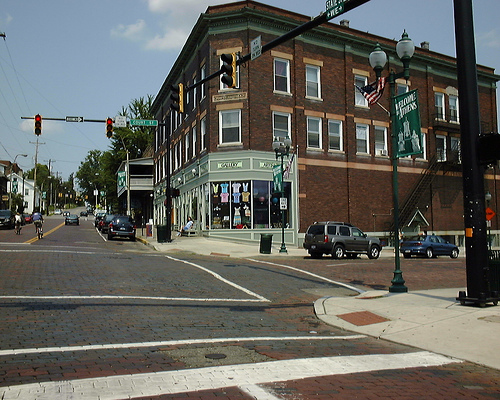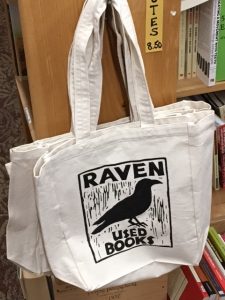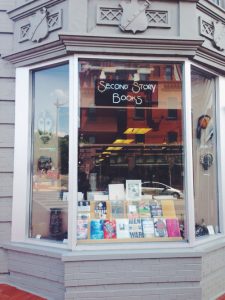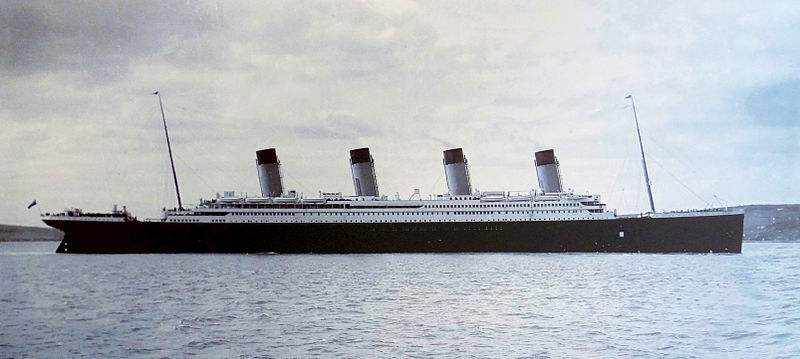


The last Saturday in April is Independent Bookstore Day, which made me think of such bookstores I have known and loved. The first was during my college years in Athens, Ohio. Logan’s was way more than a bookstore. One could buy Ohio University memorabilia and textbooks, of course, but also everything from greeting cards to Vanity Fair underwear!




Independent bookstores are more than just stores; they’re community centers run by passionate readers. They are as good as secondhand bookstores in offering the possibility of serendipitous finds. In addition, they support the local economy through job creation and tax dollars. So buy local!
Independent Bookstore Day is a one-day national party that takes place at indie bookstores across the country. Every store is unique and independent, and every party is different: authors, live music, cupcakes, scavenger hunts, kids events, art tables, readings, barbecues, contests, and other fun stuff. Check out what’s happening in your area!
In a world of tweets and on-line searches, bookstores are not dying out. They continue to grow and expand and enrich the lives of readers and communities. So prepare to party down tomorrow!

I recently visited one of my favorite bookstores, the Raven, in Northampton, MA. I came away with three treasured books.
You may know that I collect dictionaries. And yes, I have shelves of them. What makes this one worthy of acquisition is that it spans multiple English-speaking locales. For example, the noun gam is British for oral sex, but in Australia it is a sanitary pad or tampon. The noun crack in the US refers to the drug; in Ireland and Britain it means a good time but when preceded by “the” it means what’s going on the latest news, or current ambiance. It’s also a vulgarism for vagina in all English-speaking areas. (Lots of slang refers to sex acts and genitalia.)
As an adjective, it’s British for top-notch or first-rate. As a transitive verb, it means to share or split.
(N. B., the meaning of slang often depends on context.)
My second find is a compilation of anecdotes and their attributions. More accurately, it’s a list of sources and related stories. For example, under Mark Twain there are 23 entries, such as “In a world without women,” Twain was once asked, “what would men become?” He replied, “Scarce, sir. Mighty scarce.”
The backmatter includes a source list, bibliography, index of names, and–perhaps most valuable to writers– a subject index.
Last but not least, I bought a book of insults. They are so often creative and funny. “He smokes the kind of cigars that leave you smellbound.” The contents are organized by subject.
One reason to love used books: they’re inexpensive. I got all three of these for $20.03, including taxes. The best prices are usually at library book sales or at yard/tag/garage sales.

I browse used bookstores more broadly than others. When I entered the Raven, I wasn’t looking for the books I bought!

The Tattered Cover is another favorite of mine, though it is technically a hybrid: it sells both new and used books.
BOTTOM LINE: Check out used bookstores. You might surprise yourself!
Interested in learning more about writing? Join me at Agile Writers for my class on Write Your Life: Memoir and Memoir-Based Fiction. For more information, visit the Agile Writers website.
